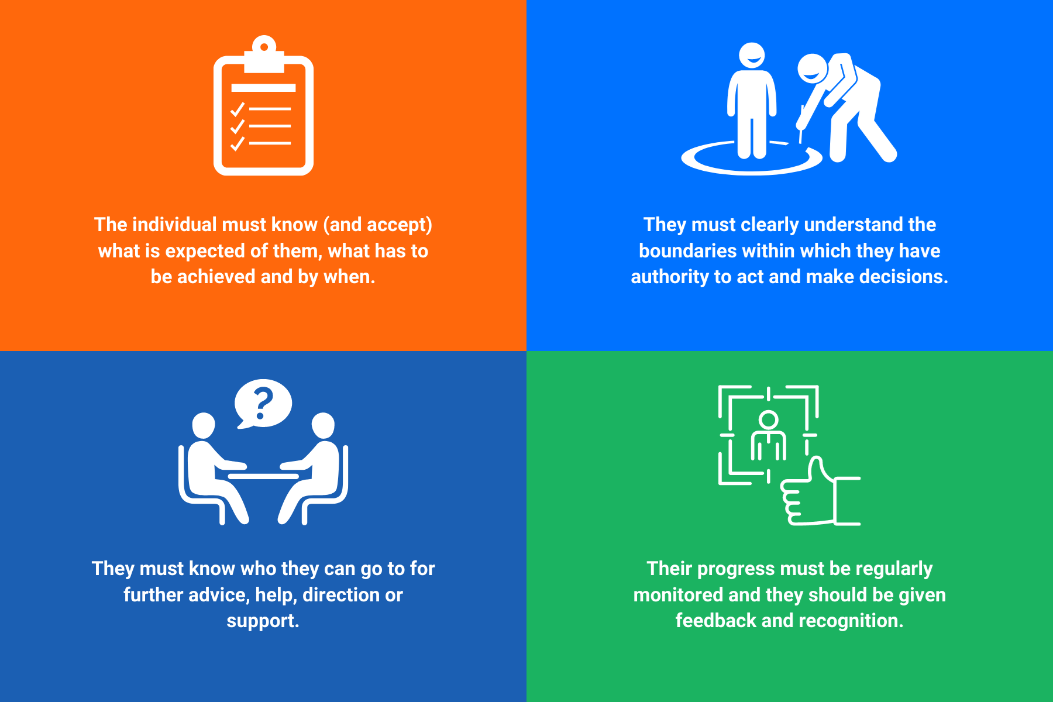On our leadership programs, a frequent concern raised by delegates is the fact that they feel they are spending too much time working ‘in the business’. They are not alone, with a study by McKinsey finding that nearly half (48%) of the surveyed executives admitted that they were not concentrating sufficiently on guiding the strategic direction of the business.

Many people will tell you they are too busy to delegate — that it’s simply more efficient for them to just do it themselves, or that they don’t trust others to take on the responsibility, or even that they don’t want to overload their direct reports.
Whatever the reason(s) for not delegating, we know that when leaders / manage delegate appropriately, they free up their time to allow them to focus on the tasks that they should be concentrating on, such as strategic thinking and people development. Rather than spending all of their time working 'in the business' they can now work 'on the business' focusing on value add activities.
Effective delegation is not just about freeing up time for you to focus on important activities, it is also an opportunity to allow others to develop, learn a new process or skill, or to gain experience in a particular area.
“Before you are a leader, success is all about growing yourself. When you become a leader, success is all about growing others”
Jack Welch
By following the right steps you can confidently delegate tasks to others and create an environment in which they can succeed and achieve their objectives, whilst giving you the time to focus on what you should be doing.
What is required for successful delegation?
1. The individual must know (and accept) what is expected of them, what has to be achieved and by when.
2. They must clearly understand the boundaries within which they have authority to act and make decisions.
3. They must know who they can go to for further advice / help / direction / support.
4. Their progress must be regularly monitored and they should be given feedback and recognition.

Creating the environment for success
Tools such as the Urgent Important Matrix, which we explored in a previous blog, can help you to identify appropriate tasks to delegate. Also ensure that you allow sufficient time to properly delegate the task as direction and ongoing support may be required to help the team member successfully complete the task to the required standard.
Be clear about what they are responsible for and what autonomy they have to make decisions – and then avoid ‘being helpful’ and stepping in to solve issues when they arise.
Explain why you are delegating the task to them. By giving them the context for how it fits into their individual or overall company goals or how it provides an opportunity to progress, learn or develop, you will increase their motivation and commitment to achieve the objective.
It is hugely demotivating to be set a goal / objective without getting any feedback on how you are progressing. Providing constructive feedback and positive recognition is therefore an essential element of successful delegation.
By following these steps, not only will you have more time to focus on the issues that you should be concentrating on, but you can build a workplace where individuals know what their individual objectives and responsibilities are and how they fit into the overall company vision / goal; where people are motivated and engaged to take ownership and achieve those objectives and bring their best selves to work, and where they confidently and competently solve problems, make decisions and feel able to take responsibility for their mistakes.
If you are interested in finding out more about how we help our delegates to improve their leadership skills in order to develop themselves, their teams and their organisations, please get in touch with Jo Draper or Stewart Barnes. Our next effective leadership program for senior leaders (LEAD™) starts in April.
You may also be interested in our ‘Effective Delegation’ online self-paced course aimed at those in a leadership / management position who would like to develop their delegation skills in order to maximise team performance. Learn more here.
Keep up-to-date on the latest leadership and management tips by signing up to our weekly blog here




